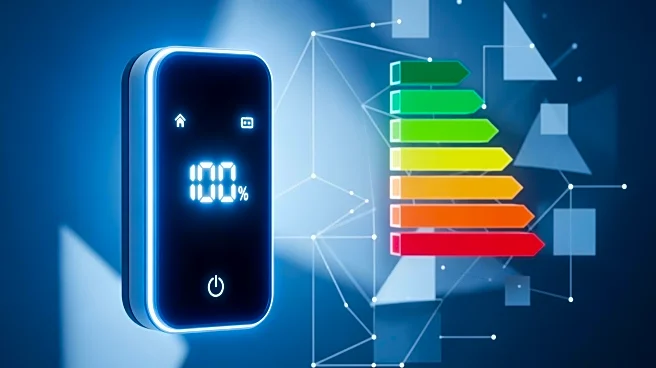What's Happening?
Artificial intelligence is being leveraged to improve energy efficiency in buildings, despite concerns over its high energy consumption. AI can optimize lighting, ventilation, heating, and cooling based
on various factors, reducing energy use by 10% to 30%. Automated systems can schedule air conditioning and heating around worker schedules, preventing inefficient manual adjustments. AI also monitors HVAC systems to predict maintenance needs, avoiding costly repairs. Additionally, AI can optimize electric vehicle charging times to reduce grid strain and emissions. These applications demonstrate AI's potential to offset its energy consumption by enhancing efficiency in other areas.
Why It's Important?
The use of AI in energy management is crucial as buildings account for a significant portion of U.S. greenhouse gas emissions. By improving efficiency, AI can contribute to reducing the environmental impact of buildings and support sustainability goals. This technology offers a practical solution for businesses and homeowners to lower energy costs and reduce their carbon footprint. As AI continues to evolve, its role in energy management could expand, influencing public policy and industry standards. The potential for AI to optimize energy use across various sectors highlights its importance in addressing climate change challenges.
What's Next?
The continued development of AI-driven energy solutions may lead to broader adoption across industries, with potential regulatory incentives to encourage energy-efficient practices. As AI technology advances, it could further enhance the precision and effectiveness of energy management systems. Stakeholders, including government agencies and environmental groups, may advocate for increased investment in AI technologies to support climate goals. The integration of AI in energy management could also drive innovation in related fields, such as renewable energy and smart grid technologies.
Beyond the Headlines
The use of AI in energy management raises ethical considerations regarding data privacy and the potential for increased surveillance. As AI systems become more integrated into daily life, there may be cultural shifts in how society perceives technology's role in sustainability. Long-term, AI's ability to optimize energy use could contribute to significant reductions in emissions, supporting global efforts to combat climate change.











